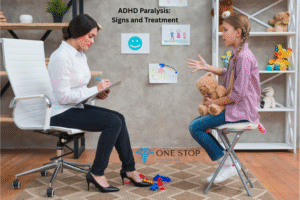How Healthy Relationships Strengthen Mental Health and Emotional Well-Being
We all know relationships matter. But I don’t think we realize just how much they impact our mental health. Think about it. The people around us—whether it’s family, friends, or even our partners—can either make us feel at peace or leave us totally drained. I know, because I’ve felt both. That’s why having healthy relationships isn’t just nice to have. It’s essential for how we feel, day in and day out.
Let’s talk about why these relationships are so important for your mental health. And more importantly, how you can start building better ones. We’ll also get into how to handle it when a relationship starts to feel… well, toxic.
Why Healthy Relationships Matter for Mental Health
Humans, by nature, need connection. It’s like, in our DNA. When you have people around you who care—people you can lean on—everything feels more manageable, right? Life doesn’t seem as heavy. Studies even back this up. Those with strong, supportive relationships are less likely to experience anxiety or depression. I’ve been there myself. Just having that one friend to talk things out with makes a world of difference.
But on the flip side? Loneliness, or feeling like no one really gets you, can make life much harder. Without those strong connections, everything feels bigger. Stress, sadness, even doubts about yourself. A good relationship acts like a buffer—like a cushion—for life’s tougher moments.
How to Build and Keep Healthy Relationships
Now, let’s get one thing clear. A healthy relationship doesn’t mean everything is perfect all the time. Far from it. It’s more about how you handle the ups and downs. If the relationship is adding more good than bad to your life, you’re on the right track.
Here’s a few ways you can build healthier relationships:
- Talk Honestly and Listen for Real You know how sometimes we “listen,” but we’re just waiting for our turn to talk? Yeah, that’s not real listening. Good communication goes both ways. You gotta open up, but you also need to really hear what the other person is saying. And when things get rough, don’t shy away. Honest talks—even when they’re tough—can prevent a lot of bigger problems later on. Trust me, avoiding stuff only makes things worse.
- Respect Goes a Long Way Without respect, no relationship can survive. You’ve gotta feel like you matter, like the other person values you, and they should feel the same way. Respect means accepting each other’s differences, even when you don’t agree. It’s also about supporting each other through the good and bad times. In my experience, a good relationship makes you feel lighter, not heavier.
- Set Boundaries and Stick to Them Boundaries are big. They’re not just walls; they’re ways to protect yourself. It’s okay to say no or to ask for space when you need it. If someone doesn’t respect your boundaries, that’s a red flag. You should never feel bad about protecting your mental space. Trust me on this—boundaries can actually make relationships stronger.
- Make Time—Even When Life’s Busy Life gets busy, I get it. But the truth is, if you want strong relationships, you have to make time for them. Whether it’s a quick coffee, a walk in the park, or even just catching up over text, these small moments can strengthen your connection. It’s the little things that count.
How to Spot a Toxic Relationship
Not every relationship is good for us, though. Sometimes, the people we care about can unintentionally hurt our mental health. I’ve seen it happen—someone who you love starts making you feel worse instead of better. Toxic relationships drain your energy. They make you feel stressed, anxious, or just not good about yourself.
If someone constantly criticizes you, ignores your boundaries, or tries to control you, that’s a red flag. I’m not saying all conflict is bad. But if you feel negative more often than positive around someone, it might be time to rethink the relationship. It’s tough, but protecting your mental health comes first.
Self-Care Isn’t Selfish
While healthy relationships can boost your mental health, don’t forget to take care of you. Self-care is not selfish. It’s necessary. Whether it’s reading a book, going for a solo walk, or just chilling on your own—make time for yourself. I always say, you can’t pour from an empty cup. Taking care of yourself helps you show up better for the people you love.
When You Need Extra Support
Even with good relationships and self-care, sometimes, life gets overwhelming. And that’s okay. There’s no shame in needing extra help. If you’re feeling stuck, talking to a therapist or joining a support group can make a big difference. Sometimes, even the best of friends or partners can’t give us what we need. That’s when therapy comes in.
Seeking help doesn’t mean you’re weak. It just means you’re taking control of your mental health. We all need help sometimes, and that’s completely normal.
The Takeaway: Small Steps Matter
Healthy relationships aren’t built overnight. But they are one of the best things you can invest in for your mental health. Start small. Send that text to an old friend, have that honest conversation you’ve been avoiding, or just practice being more patient. It’s not about being perfect, but about being better.
Strong relationships and good self-care can help you manage stress, find relief from anxiety, and live a more balanced, happy life. So, take that first step today. It doesn’t have to be big. Just reach out, and start building those connections that support your well-being.
At OneStopPsych, we understand the importance of connection in the healing process. Whether you’re navigating relationship stress or seeking guidance to build healthier bonds, our team is here to help.
Contact us today to begin your journey toward a more connected, balanced, and mentally healthy life.




